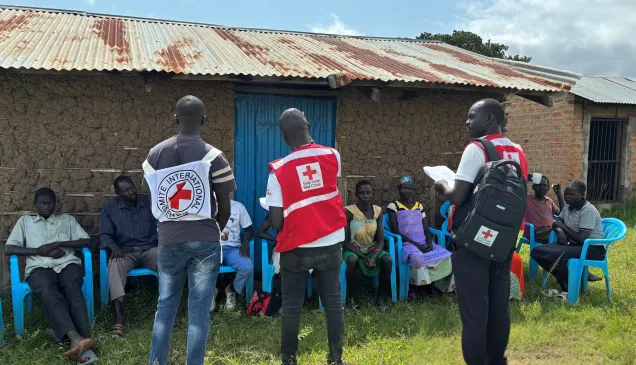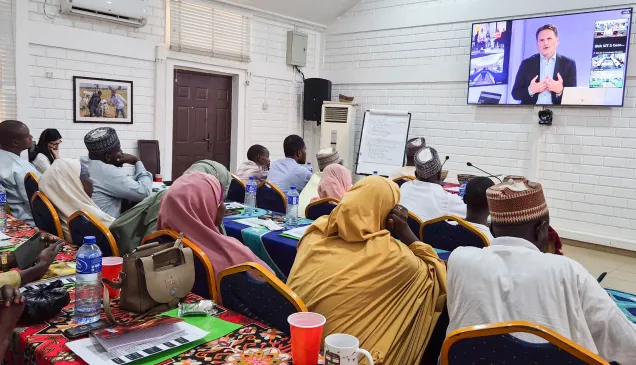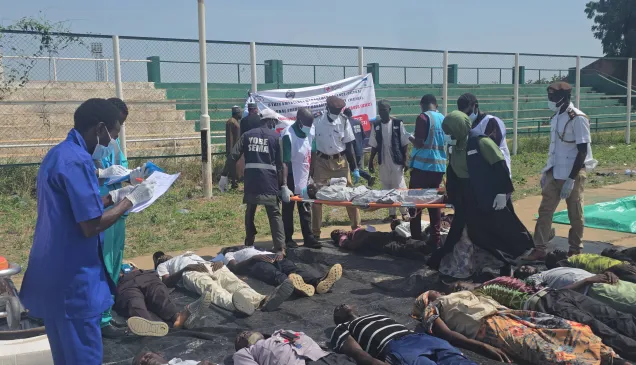Nigeria: From Biafra War refugee to IHL lecturer
Barrister Okanga is a university lecturer at Niger Delta University in southern Nigeria. A childhood experience during Nigeria's civil war was instrumental in his becoming a teacher of international humanitarian law.

Okanga remembers one day in his life like no other. It was over forty years ago, when he was not quite 10, but the film of those events and what followed plays in his head as smoothly today as if it were yesterday.
Sometime in April 1968, Okanga was looking ahead to the school day when he noticed a very unusual sight in his peaceful village of Mbiakpani, which lies in what is now Cross River State. Soldiers in combat gear poured into the village and ordered everyone out. Okanga was face to face with the Nigerian civil war, often known as the Biafra War. The soldiers, whom he remembers as secessionist (Biafran) forces, ransacked the village and embarked on a two-day operation that left many dead, including Okanga's father. His quiet village suddenly found itself in the middle of a war and a humanitarian crisis.
"Those of us who survived, mostly women and children, stayed in a refugee camp in Biafra from April 1968 to April 1969. The [International Committee of the] Red Cross helped us a lot. That was the first time I'd heard of the Red Cross. They gave us food, such as rice, beans, salt, milk and wheat, and they gave us medicines."
Eventually, the refugee camp where Okanga was living fell to Nigerian federal forces. He saw this as a kind of liberation, and well remembers the help his people got from the ICRC in starting a new phase in life.
"When Nigerian troops captured those areas, they took us to Gakem and Calabar in what is now Cross River State. We had no money or food, so the Red Cross continued to give us food, medicines and even school uniforms. The uniform I wore at primary school after the war was given to me by the Red Cross. When the war ended in 1970, and we returned to our homes, the Red Cross continued to assist us."
Today, Barrister Okanga teaches international humanitarian law at Niger Delta University. IHL is a branch of international law that protects people who are not participating in hostilities and limits the means and methods of warfare. He has around 50 students, representing the growing number of law undergraduates interested in IHL. At a time when Nigeria faces spiralling violence in different parts of the country, Okanga hopes his students, and those studying IHL at other Nigerian universities, will spread knowledge of how to preserve a measure of humanity during armed conflict. He takes time out occasionally to attend conferences organized by the ICRC for lecturers of IHL, where participants discuss ways of explaining the law of armed conflict to Nigerians. At one such conference held in the Nigerian capital, Abuja, he summed up his views on the ICRC:
"The ICRC played a key role in my life. Not only in my life but also in the life of my family and my community as a whole. It contributed a lot towards protecting our rights as human beings. And I know that what they have done for me as a person, for my family, for my community, they have also done for people in other areas where there have been armed conflicts."



